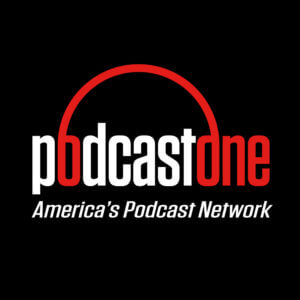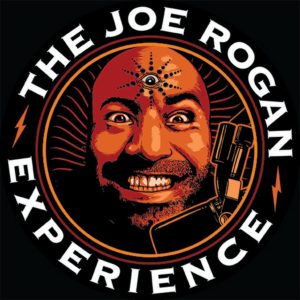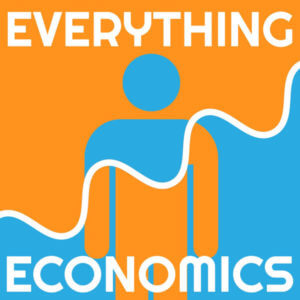Independent Podcast Networks: A Contradiction in Terms?
I enjoy learning things, but I don’t always relish the moment in which I realize I need to learn something. For example, when my boss suggested writing a piece on independent podcast networks, I was hesitant to admit that I didn’t know what that was. It was a classic “I know what all of those words mean separately” kind of situation and, since writing about podcasts is my job, I was pretty sure I was supposed to know what he was talking about. In the process of researching, though, I found out that there are probably a lot of people like me, roaming around pretending to know what’s going on and hoping someone will just so happen to throw out some definitions alongside the terms.
Well, they may not, but I will. So let’s talk about podcast networks, independent podcasts, independent podcast networks, and why any of them should matter to you.
Podcast Networks

When I googled it, my favorite definition of a podcast network was from Backtracks: “A podcast network is a network of podcasts.” Okay, that may not be entirely fair, they go on to say “…connected by a similar theme, genre, partnership, or ownership,” but the beginning is both funny and revealing. The concept of podcast networks is pretty straightforward, they’re a network of podcasts. In her article, Hannah Ostic adds that a podcast network is “a group of shows housed in one place.” Examples include PodcastOne, Gimlet Media, Earwolf, Maximum Fun, and Slate.

“What’s the point?” you may ask. Well, generally the idea is that a network coordinates cross-promotion and connections with advertisers. In their definition of podcast networks, PodcastOne includes some of these functions: “A podcast network is a collection of podcasts that are produced, distributed or made available to advertisers through a single company, or network.” Networks have their shows advertise for each other, have each other on as guests, or in general just vocally support the work of the network’s creators, encouraging their audience to listen to other shows in the network. Networks may also provide production and editing services, equipment, and sponsorships from advertisers.
The benefits are clear but major podcast networks aren’t for everyone. Most networks expect a certain level of quality and a certain audience size before signing shows, so if you’re just starting out, it may be hard or near impossible to get on with a major podcast network and reap the rewards of that partnership. Which means you may fit the next category a little more clearly.
Independent Podcasts

An independent podcast is one that does not have the backing of a network and functions, well, independently. These range from tiny shows that just started to Dan Carlin’s Hardcore History, The Joe Rogan Experience, The Accidental Tech Podcast, and WTF with Marc Maron. It may seem nearly impossible to build a large audience without a network, but there are certainly creators doing it, just not alone. Dan Carlin has mentioned “pinging off” other podcasts when he first began his shows: he developed friends in the industry and they all worked to promote each other’s shows, just not under the heading of a formal network. Further, independent podcasts can pursue their own sponsors, something Robert Peterson (a podcast advertising expert) suggests in order to show advertisers and brands that you’re serious about your show and about helping them sell their product. It may be a lot of work, but it’s much more than possible for an independent podcast to make it big in the industry.

That said, not all of them will. And lots of creators are fine with that. Small podcasts that are focused on a very specific audience benefit from the freedom that being independent offers. They operate outside of any need to promote shows they feel may be outside of their listener’s interests or any pressure to leave their niche in order to reach a wider audience. Independent podcasts can also put in exactly as much or as little work as they want, so if you’re looking to have podcasting as a fun, minimally demanding hobby, this is probably the best place to put yourself.
Now, the last category, the one that started this entire escapade.
Independent Podcast Networks
Now, you may be thinking: “isn’t this a bit oxymoronic if a podcast is independent because it’s not a part of a network?” Yes, grasshopper, in a sense you’re right. An independent podcast network is a group of shows that want to support each other through cross-promotion, equipment sharing, and financial support, without having any say on each other’s content or operations. Still confused? I feel like an example may help.

In my quest to understand, I had the privilege of talking with Tahlia Murdoch about the Cave Goblin Network, “a local indie podcast network” based in Vancouver. Last year, Tahlia and her partner, Doug Vandelay, both decided to start their own podcasts and “call ourselves a network so hopefully, we had the opportunity to grow and meet other shows in Vancouver.” The duo decided on Cave Goblin Network because “we’re just like recording out of our very tiny basement suite… the ceilings are six feet high at the best of times, so it’s like a little cave we’re living in.” Despite the humble beginnings which included only Doug’s Comedy Zeitgeist and Tahlia’s Everything Economics, Cave Goblin Network has grown to six shows from all over podcasting’s map.
When I asked Tahlia why the pair decided to start a network, she said a lot of it had to do with community both publicly to show listeners and privately in the planning process: “The main thing is cross-promotion… it adds an air of legitimacy because it shows you’re part of a network. But for me, it’s definitely been great to be able to bounce ideas off of people.” Beyond that, the network will get a reduced price on their hosting service if they have ten total shows on the network, and the shows benefit from sharing equipment and software to increase each other’s production value.

Each of these benefits come alongside the ability for these shows to be anything they want to be. “Some of [the bigger network’s shows] are trying to reach a wider audience rather than narrowing their scope down to get into the niche, which is what a lot of indie podcasts will do,” Tahlia said. These podcasts know their audience and stick with them, without any fears of having to reach outside of that audience to keep a network happy. To accomplish this, Cave Goblins “wouldn’t ever try to take creative control over any of our shows” or “try to dictate who the audience is.” There are, of course, some drawbacks that come with an independent podcast network, mainly that they start relatively small.
Large, well-established networks can produce much more immediate benefits on a large scale because they’ve fostered major connections and wield a lot of influence. But, for small or new independent podcasts that don’t yet reach those networks’ standards, an independent podcast network has small podcasts “helping each other while [they’re] at the same level,” as Tahlia explained it. The hope, of course, is that they don’t remain at that level. Tahlia pointed to the example of The Last Podcast Network, which began as a small independent podcast network and was catapulted to success when their “bizarre and beloved flagship show Last Podcast on the Left” garnered a major following. This allowed them to support and promote their other shows even more effectively, and Cave Goblins is hoping to accomplish something similar over time.
I know what you’re thinking (maybe, I’m not a mind reader and I’m pretty sure even if I were it wouldn’t work through the internet): how are little independent podcast networks competing with the Goliaths of the industry? I asked Tahlia something similar and she said “with podcasting, there’s room for everyone. You’re not trying to get air time or ad space.” Independent podcast networks have a clear vision of what they’re seeking to accomplish and make it work alongside major networks who are also doing their own thing. Podcasting, like we’ve said before and will say again, is far from a zero-sum game.
So, we know we can count on major networks continuing to grow – especially with the Spotify purchase of Gimlet putting a clear price tag on such networks – and we can be sure independent podcasts will increase year over year. But should we be expecting an explosion of independent podcast networks? “Yeah, I don’t know,” Tahlia answered. She pointed to Cave Goblin’s recent trip to Podcon and said that very few networks were represented and the space was dominated by independent shows. “I’d like to see it happen… I think it would be cool,” she added, citing the benefits of podcasts supporting one another and the possibility of startups like Podchaser who are making it easier for creators to connect with each other as a possible conduit for new networks.
When it comes right down to it, none of us really know what the future of podcasting will look like, but at least now we know what an independent podcast network is, so that should count for something. Podcast network, independent podcast, or independent podcast network – choose what works best for your show and make it happen.
This piece is part of Podchaser’s Industry category, featuring helpful information and exciting news for people in podcasting. If you have a topic you’d like us to cover, an agency or show you’d like us to interview, or news you think Podchaser readers should know, email [email protected]!
Unlock more with Podchaser Pro
- Audience Insights
- Contact Information
- Demographics
- Charts
- Sponsor History
- and More!

- Account
- Register
- Log In
- Find Friends
- Resources
- Help Center
- Blog
- API
Podchaser is the ultimate destination for podcast data, search, and discovery. Learn More
- © 2024 Podchaser, Inc.
- Privacy Policy
- Terms of Service
- Contact Us